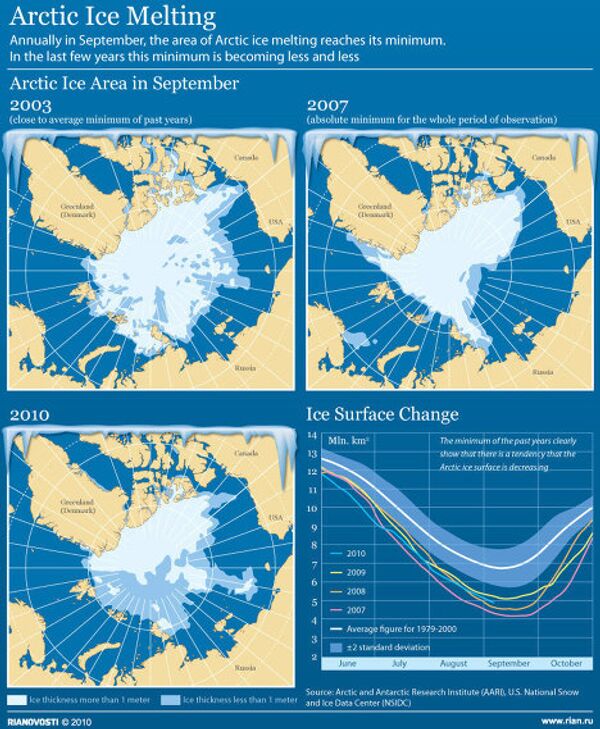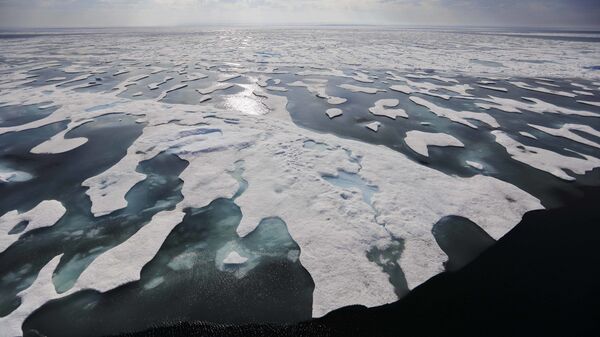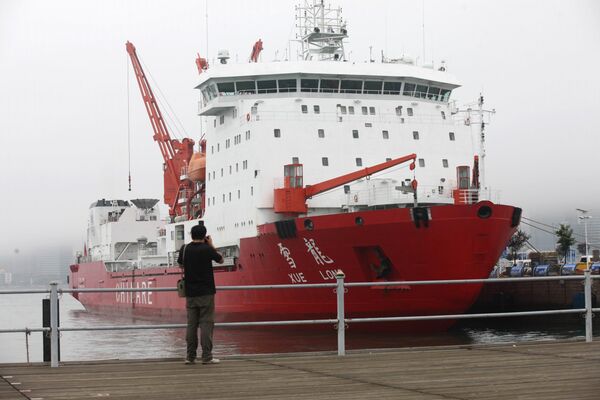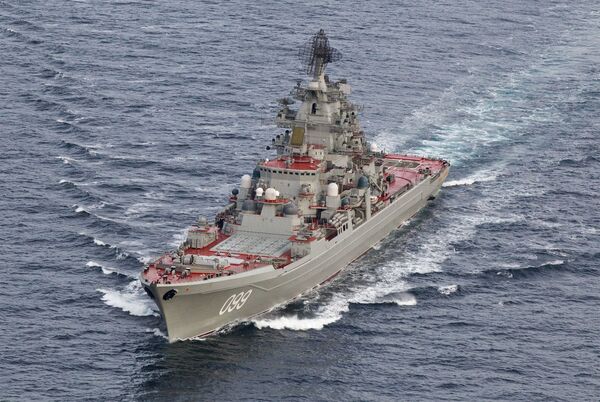With Arctic sea routes expected to become ice-free in summertime as early as the 2040s, nations are rushing to position themselves to maximally benefit from the newly available sea lanes. However, for policy wonks at think tanks like CSIS, US policy toward changing circumstances in the region has been largely reactive and lacks depth.
‘US Does Not Know What It Wants’
“There’s no coherence to it,” Heather Conley, CSIS’ senior vice president for Europe, Eurasia and the Arctic, told the Washington Times on Monday about the US Arctic policy. “Our strategy ends up being a description of what Russia and China are doing in the Arctic because we are not really able to articulate what we are doing in the Arctic.”
“The US does not know what it wants. It does not know what it wants to accomplish. It does not have a positive policy agenda. And the problem is our adversaries know what they want. The strategy is just reacting to what they can do,” Conley told the paper.
In a May 2019 paper for CSIS, Conley blasted “stagnation” on the matter by both the Obama and Trump administrations, noting “the United States ‘makes do’ by ‘making it work’” with other nations in the region.

“Years of underinvestment now leaves the United States ill-prepared as other nations prioritize the region as one of future geostrategic value,” she stated, noting as one example the 800-mile distance between the strategically important Bering Strait waterway and the closest US deep water port, Dutch Harbor, in the Aleutian Islands chain.
“To date, the United States does not have a meaningful policy response to either Russia’s or China’s increased economic and military ambitions in the region,” Conley wrote. “For now, Washington is acknowledging Russia and China’s growing footprint in the Arctic, but it is allowing both nations to largely shape the region’s future. With the exception of the construction of a polar security cutter, there are no other significant infrastructure initiatives on the horizon.”
Pentagon Attacks Russia’s Claims
The Office of the Under Secretary of Defense for Policy handed Congress its Arctic Strategy report in June of last year, in which it elaborated what policy it does have toward the region.
Curiously, while the report attacks Russia as “claim[ing] the right to regulate Arctic waters in excess of the authority permitted under international law,” the Pentagon levels the same criticism at US ally Canada.
“Russia views itself as a polar great power and is the largest Arctic nation by landmass, population, and military presence above the Arctic Circle,” the Pentagon report states. “Russia’s commercial investments in the Arctic region have been matched by continued defense investments and activities that strengthen both its territorial defense and its ability to control” the Northern Sea Route. The report notes increased Russian defense efforts in the region, including refurbishing old airfields and establishing “a network of air defense and coastal missile systems.”
“China’s operational presence in the Arctic is more limited. It includes China’s icebreaking vessels, the Xuelong and newly-constructed Xuelong 2, and civilian research efforts, which could support a strengthened, future Chinese military presence in the Arctic Ocean, potentially including deployment of submarines to the region,” the report states.
Russia’s interest in the Arctic comes as little surprise: it has 15,000 miles of Arctic coastline, according to Russia’s Arctic Institute. China, however, is at least 900 miles from the Arctic Circle at the country’s northernmost point - even longer if the trip is by sea - and has little in the way of economic investment in the region, which is mostly closed to fishing.
‘A Polar Silk Road’
China spelled out its entitlement to the region, despite not having an Arctic shoreline, in a January 2018 white paper.
“China is an important stakeholder in Arctic affairs,” the State Council Information Office of the People’s Republic of China white paper stated. “Geographically, China is a ‘Near-Arctic State,’ one of the continental States that are closest to the Arctic Circle. The natural conditions of the Arctic and their changes have a direct impact on China’s climate system and ecological environment, and, in turn, on its economic interests in agriculture, forestry, fishery, marine industry and other sectors.”
However, the report states the Belt and Road Initiative, an increasingly expansive infrastructure network across Eurasia, Africa, the Pacific and even Europe, “will bring opportunities for parties concerned to jointly build a ‘Polar Silk Road,’ and facilitate connectivity and sustainable economic and social development of the Arctic.”
US, UK Navies Drill in Barents Sea
However, just four days ago, the US Navy and British Royal Navy dispatched warships to the Barents Sea, a waterway north of Norway that forms Russia’s primary northern gateway to the Atlantic Ocean, for the first time since the 1980s.
Four destroyers, accompanied by a P-8A Poseidon maritime patrol and reconnaissance aircraft and an RC-135 Rivet Joint reconnaissance aircraft, performed their own drills in the area for a week while Russia’s Northern Fleet performed its own drills nearby, Sputnik reported.
“The Arctic is an important region and our naval forces operate there, including the Barents Sea, to ensure the security of commerce and demonstrate freedom of navigation in that complex environment,” US Adm. James G. Foggo III, commander of Naval Forces Europe and Africa, said in a May 8 news release by the US Navy. “Our operations with the UK demonstrate the strength, flexibility, and commitment of the NATO Alliance to freedom of navigation throughout the Arctic and all European waters.”






